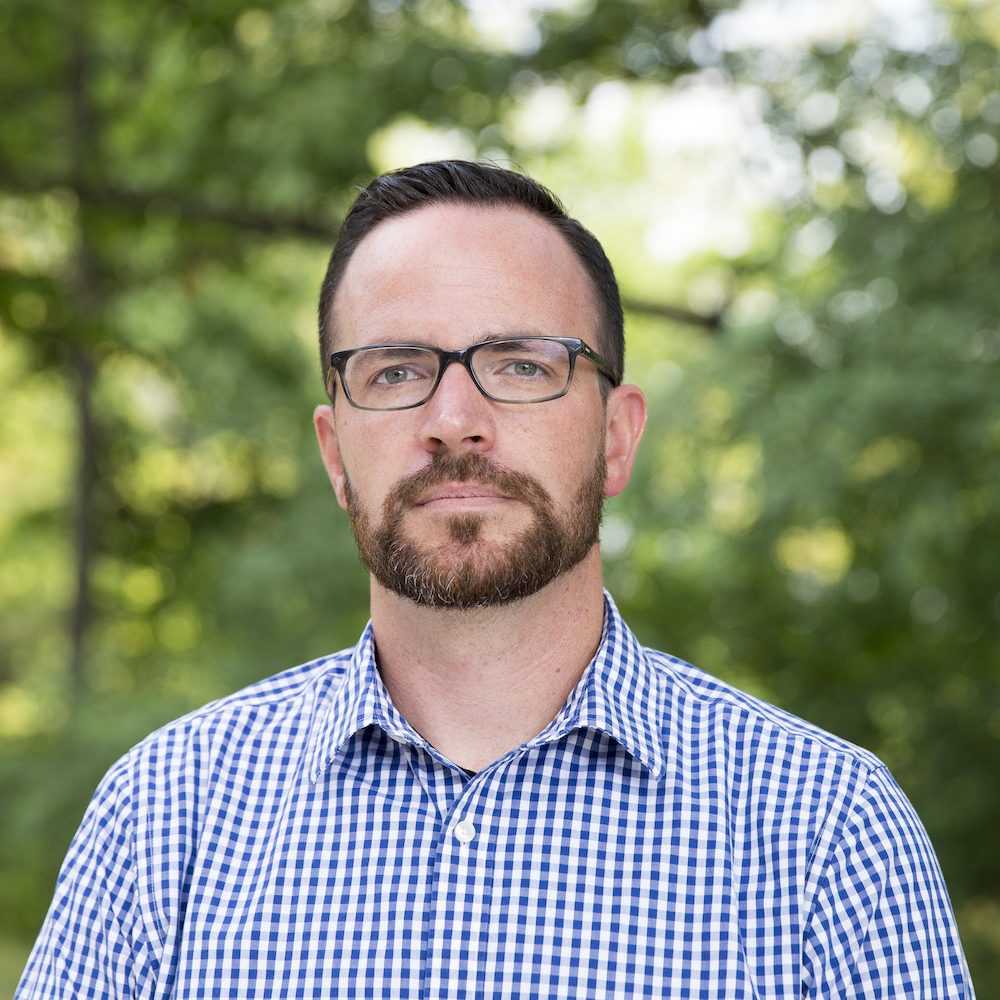We asked Andy to tell us how he got started in coaching, then moved into a faculty role.

I started my career as a secondary teacher and swimming coach in Springfield Township (Montgomery County) just outside of Philadelphia, PA. I studied biochemistry in college, but working in the pharmaceutical industry was not what I wanted to do. I liked the challenge of building a program, but after giving much of my 20’s to doing this, I needed to find a more stable career. So, I took a graduate assistant swimming coach position at Minnesota State University, Mankato, with the plan to become a collegiate swimming coach. A friend told me that if I was willing to move, I could find an assistantship, so I moved halfway across the country. There were not master’s degree programs in coaching at the time, but I studied sport and exercise psychology and found it incredibly relevant to the work of coaching. My master’s advisor, Dr. Cindra Kamphoff, convinced me that I needed to apply to PhD programs. I applied to Michigan State’s PhD in Kinesiology, and with a little luck, I was accepted. I studied with Dr. Dan Gould for 4 years. Dan has always been an entrepreneurial thinker and saw the demand for online master’s programs in coaching. In 2014, a faculty position was created to develop this program at MSU – I applied and got the job.
So, what do you do in your current faculty role?
Teaching and advising students is most of what I do, but I also direct our master’s program, which entails strategic thinking and planning about how our program can continue to grow and evolve. Faculty life involves lots of service committees in our department and college, like job searches, promotion reviews, and other governance functions. I also work with the Institute for the Study of Youth Sports, where I’m involved in planning and conducting a few different noncredit education initiatives.
What’s your favorite course to teach?
Sigh. It’s tough to pick a favorite. Courses are like dogs – you love them equally, but in different ways. I think what I like the most is teaching courses from four different Kinesiology disciplines, because it forces me to look at the problems of coaching and sport leadership through different lenses. If you ask a sport psychologist what’s wrong about coaching, they’ll give you different answers than a motor learning scientist or a physiologist would give. So, I think it’s also valuable for students to look through those different lenses to understand the different ways to think about problems in coaching and sport leadership. Teaching in these different disciplines helps me integrate different forms of scientific knowledge that are most relevant to sport coaching and leadership.
I think KIN 868 (Skill Development in Athletes) might be the most cutting-edge course I teach because so much of the knowledge and evidence in this domain is being researched and developed and is hotly contested right now. Our sociocultural issues for sport practitioners course (KIN 846) is fun because I think it challenges students to think about their biases and to confront some of the big challenges in society related to power dynamics, race, gender, social class, and (dis)ability. In our psychosocial bases of coaching course (KIN 855) I really enjoy our project on motivational interviewing because I can see evidence of students becoming more effective communicators.
What other kinds of work do you do?
I haven’t been very active in research over the last several years, other than helping a few of my students to carry out their own research projects. I plan to resume a project this January that investigates how tennis coaches are guided by motor learning principles. When I was a PhD student, I conducted an evaluation of USA Swimming’s Foundations of Coaching course, which was really insightful and showed the importance of large-scale entry-level training programs for coaches. That work led me to getting involved with the US Center for Coach Excellence (USCCE), a national organization devoted to the advancement of coach education and coach development, and the National Committee for Accreditation of Coaching Education (NCACE), which I currently chair. NCACE facilitates program review for coach education programs in higher education and noncredit education spaces (like national-level sport governing bodies). This takes a lot of my time, but I feel it has allowed me to take a big-picture view of coaching and coach education strategy in the United States. It’s a good way to advance the profession.
What’s a fun fact about you?
I wasn’t a very good undergraduate student; biochemistry is not something to study if you don’t have a passion for it. Instead of studying chemical bonds and the electron transport chain, I spent a lot of time with two productive distractions in the late 1990s. I was the captain of my swim team, and those leadership experiences definitely stoked my interest in coaching. I also taught myself how to build websites, because that was a very new thing back in 1998. The sports information office actually let me make edits to our swim team’s website. I got the site of the week award from Swimmers World, the first internet-based swimming news site (this gives me nostalgia for the Old Internet). So despite not doing well in my official studies, to my parents’ chagrin, I was informally studying coaching and sport leadership and learning how to make websites. Flash-forward 15 years and I was hired to develop a sport coaching and leadership online master’s program. That speaks volumes about the importance of listening to those productive distractions!




